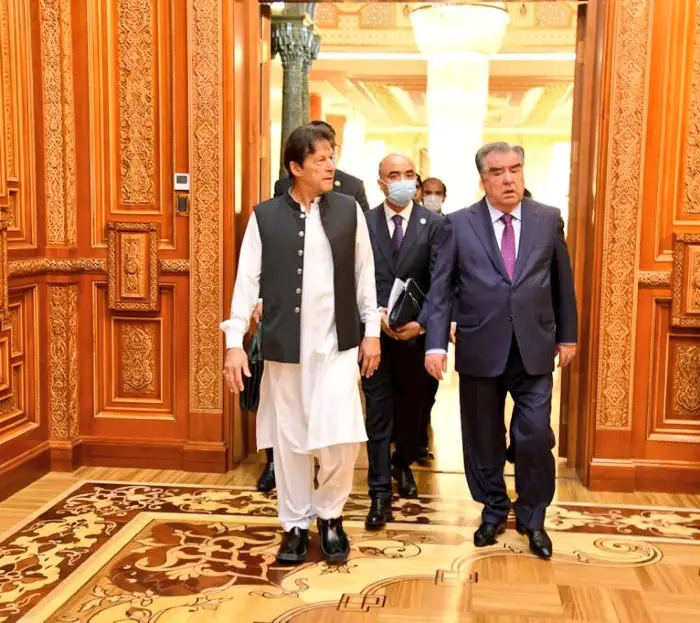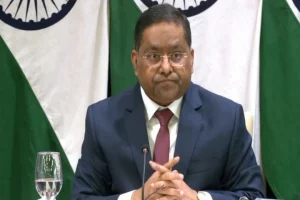Tajikistan has bluntly told Pakistan that Tajiks and other ethnic groups "must have their rightful place in the inclusive government" formed to run Afghanistan.
With Pakistan Prime Minister Imran Khan sitting right next to him, Tajikistan President Emomali Rahmon highlighted that the massive violence against ethnic Tajiks in Afghanistan's famous Panjshir valley must end.
The large-scale operation of the Pakistani army against the Afghan resistance front is believed to have been masterminded by Pakistani ISI chief Faiz Hameed whose photograph of having tea in Kabul just before the bloodbath in the valley had gone viral on social media.
"The speedy elimination of the conflict and tensions in the Panjshir province by declaring a ceasefire and opening roads for providing humanitarian assistance to the population of the region is one of the most important tasks today," Rahmon said following bilateral talks with Khan on the sidelines of the SCO Summit.
The Tajikistan President, while agreeing to facilitate negotiations between the Taliban and Tajiks in Dushanbe, said that "the question of Afghanistan" was at the centre of attention in the discussions held between the two leaders. He emphasised that the current situation in Afghanistan, a country connecting regional and international transport networks, is "of concern" and stabilizing it is especially important for the neighbouring nations.

"We, Afghanistan's neighbours, are most interested in restoring peace and stability in this troubled country, and we are paying particular attention to reviving the Afghan national economy," said Rahmon.
"In this context, the hope was expressed that peace and stability in this neighbouring country will be restored in the near future and the interests of all political and ethnic groups in Afghanistan will be taken into account. We support inclusive government in this country with the participation of all social groups," he added as Khan listened with full attention.
Tajikistan's assessment of risks is quite understandable. The country shares a long (1344 km) border with Afghanistan which in many sections passes through the inaccessible high-mountainous terrain.
As reported by India Narrative earlier this week, the Collective Security Treaty Organisation (CSTO) member countries had called the situation on the Tajik-Afghan border "unfavourable" and vowed to provide Dushanbe with all "necessary military and military-technical assistance" in case the situation deteriorates.
In order to counter the challenges and threats emerging from the Taliban, CSTO member countries Russia, Armenia, Belarus, Kazakhstan, Kyrgyzstan and Tajikistan have also announced a series of large-scale military exercises which will be held in a month near the Tajik-Afghan border.
Pakistan, which is looking at increasing trade turnover by giving Tajikistan an access to the seaports of Karachi and Gwadar, has no option but to take Rahmon's concerns to the men who matter in Taliban.
"You Mr. President will try your influence with the Tajik and we will try our best with the Pashtun or the Taliban. We will try our best to make them resolve the differences through the dialogue. And we will urge on them that it is important for the sake of Afghanistan that there is an inclusive government," Imran Khan said after Rahmon's address.
That, however, could be a case of too little, too late. Not only the top political leadership but also a major portion of Tajik community is incensed after several reports exposed the role played by Pakistan in curbing the anti-Taliban revolt in Panjshir.
India Narrative had reported about civil society groups calling for boycott of Khan's visit to Dushanbe for the Shanghai Cooperation Organisation summit. The anti-Pakistan sentiment has only grown stronger with several activists saying that the Taliban has proven to be a puppet of Pakistan and needs Islamabad to destroy its opponents.
Also Read: Iran breaks silence on rampaging Taliban, condemns Pakistan for the Panjshir bloodbath




















